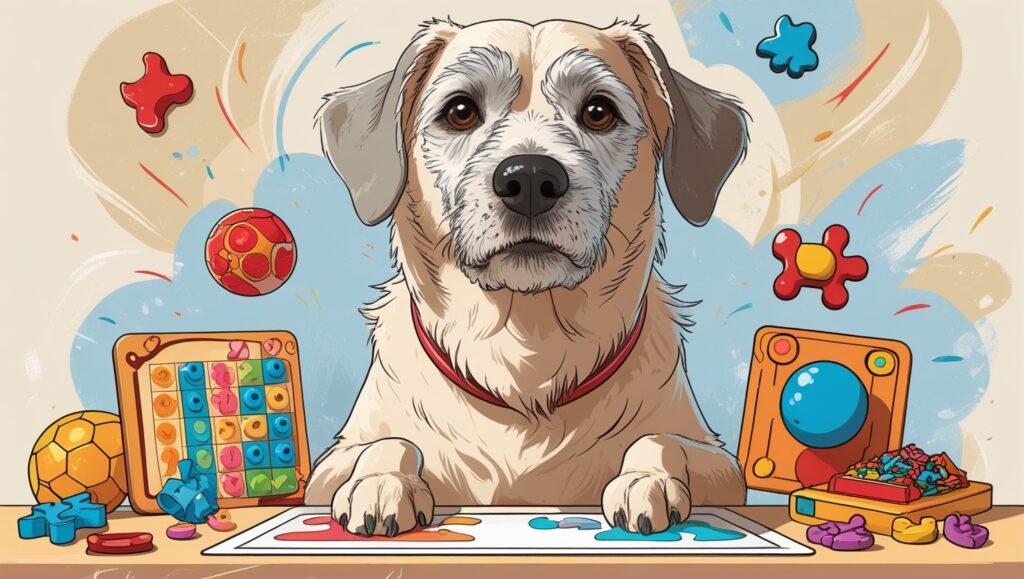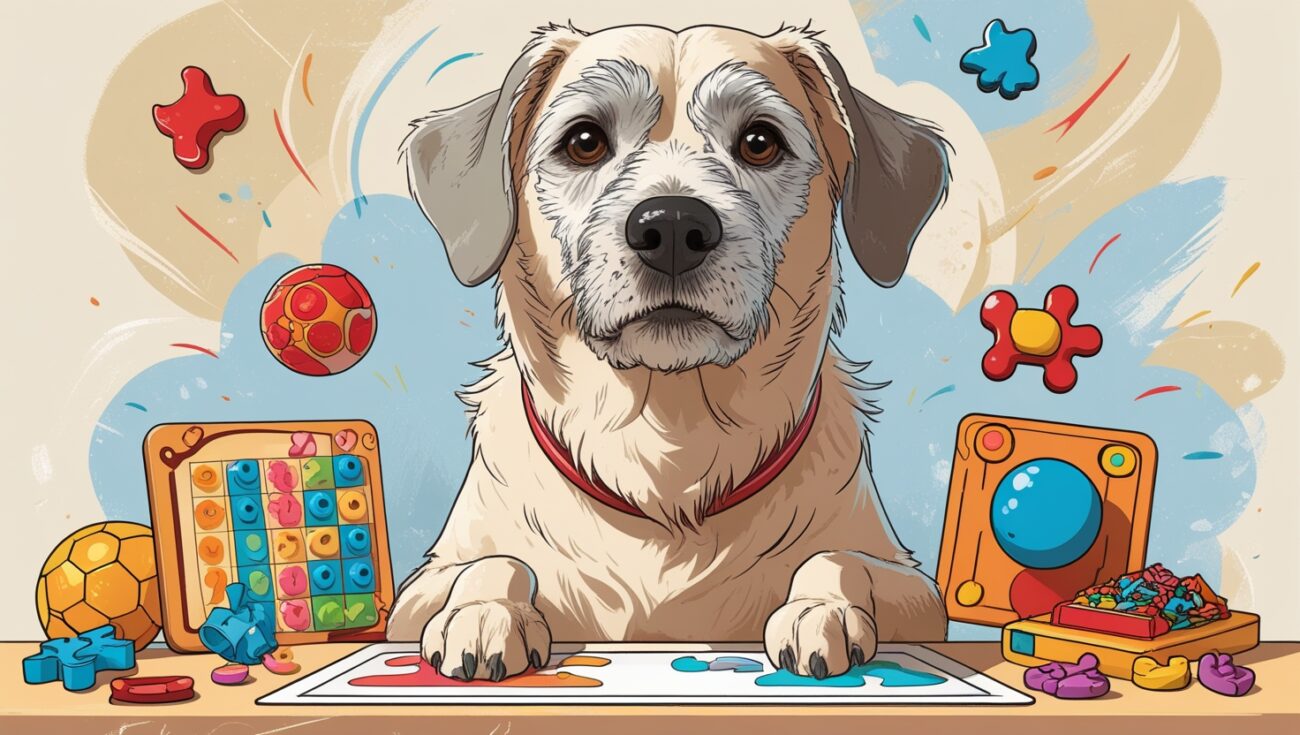How to Teach an Old Dog New Tricks With Brain Games
I used to believe the old saying: “you can’t teach an old dog new tricks.” But when my senior dog started showing signs of boredom and slowing down, I decided to try adding brain games — and wow, was I wrong! Older dogs love learning, and mental stimulation can actually bring new energy and joy into their lives.
In this post, I’ll show you exactly how to teach an old dog new tricks with brain games — and why it’s so good for their behavior, happiness, and even their health. If you want the full brain training program that helped us, here’s my personal link:
Brain Training for Dogs — Click here to check it out

Table of Contents
Why Brain Games Work So Well for Older Dogs
Even older dogs:
- Crave mental stimulation
- Need outlets for curiosity
- Benefit from learning and problem-solving
- Gain confidence from mastering new skills
- Stay mentally sharper and more alert
- Can improve focus, mood, and even physical coordination
Brain games keep your older dog’s mind and body active — which helps prevent cognitive decline and keeps them engaged with life.
The Changes I Saw
Once I started adding brain games for my older dog:
- She perked up and became more interested in training
- Her focus and alertness improved
- She was more relaxed and content during the day
- Boredom-based habits decreased
- Our bond became stronger — and she loved our time together
This is the exact program that helped me teach her new skills — even in her senior years:
Brain Training for Dogs — Full Program Here
How to Teach New Tricks With Brain Games
1. Keep Sessions Short
Senior dogs do best with 5–10 minute training games — short, positive bursts of fun.
2. Use Soft Rewards
Treats should be soft and easy to chew — and always paired with lots of praise.
3. Start Simple
Focus on easy, fun tricks first — paw, touch, spin, find it — then build up.
4. Let Them Think
Don’t rush — let your dog problem-solve and explore at their own pace.
5. Celebrate Success
Every little win builds confidence and joy — make it fun and rewarding!
Final Thoughts
If you think your older dog is “too old to learn” — think again! Adding brain games will bring new excitement, focus, and happiness into their life.
For us, this was the program that made it easy and fun — and kept my senior dog mentally sharp:
Brain Training for Dogs — Click here to check it out
You’ll be amazed how quickly your older dog’s focus, mood, and energy can improve — when you start adding simple, positive brain games into their daily routine!
Before I really understood the power of brain games for older dogs, I used to think the best I could do was just keep my senior dog comfortable. But once I started adding mental enrichment, her entire energy changed — she was more engaged, more eager to learn, and honestly seemed happier.
One of the first things I noticed? She looked forward to our brain game time every day — it gave her purpose and a fun routine, which helped keep her spirits high.
If you want a full plan that shows you exactly how to teach your older dog new tricks and keep them mentally sharp, this is the program that worked beautifully for us:
Brain Training for Dogs — Full Program Here
Another thing I saw was how brain games boosted her confidence. Older dogs sometimes lose confidence when they can’t keep up physically — but learning new things gave her a renewed sense of accomplishment.
And because mental stimulation helps maintain brain health, I honestly believe it helped slow some of the cognitive decline we were starting to see.
Even short sessions — just 5–10 minutes of light brain work — made a huge difference in her mood and energy.
For dogs who are aging but still mentally curious, brain games are one of the best ways to keep their minds active and prevent boredom or depression.
And because many games can be adapted for older dogs — with lower impact and easier pacing — they’re great for keeping seniors happy and engaged at their level.
This is the exact program that taught me how to adjust brain games for an older dog’s needs:
Brain Training for Dogs — Full Program Here
I also noticed that brain training helped improve her daily focus — she became more responsive and attentive, which made everyday life smoother and more enjoyable.
And the more she learned, the stronger our bond became — those quiet, positive sessions created such a special connection between us.
Now, instead of seeing her slow down mentally, I watch her thrive — excited for her next new trick or puzzle.
For anyone with an older dog, adding brain games is one of the most loving and effective things you can do to improve their quality of life.
And this program will guide you step-by-step — even if your dog is brand new to this kind of training:
Brain Training for Dogs — Click here to check it out
You’ll be amazed how quickly your senior dog’s energy, curiosity, and joy will improve — when you start adding the right brain games to their routine!
One of my favorite parts? Watching my older dog’s eyes light up when she figured something out. You could see how proud she was — that mental challenge brought her so much joy.
If you want to give your own senior dog that same sense of fun and accomplishment, this is the exact program that helped us do it:
Brain Training for Dogs — Full Program Here
And honestly — these little moments of connection are priceless. They help keep older dogs emotionally healthy too — giving them a sense of purpose and excitement every day.
You’ll be amazed how much these simple brain games can change your dog’s daily life — and how much it strengthens your bond with them in their golden years.

